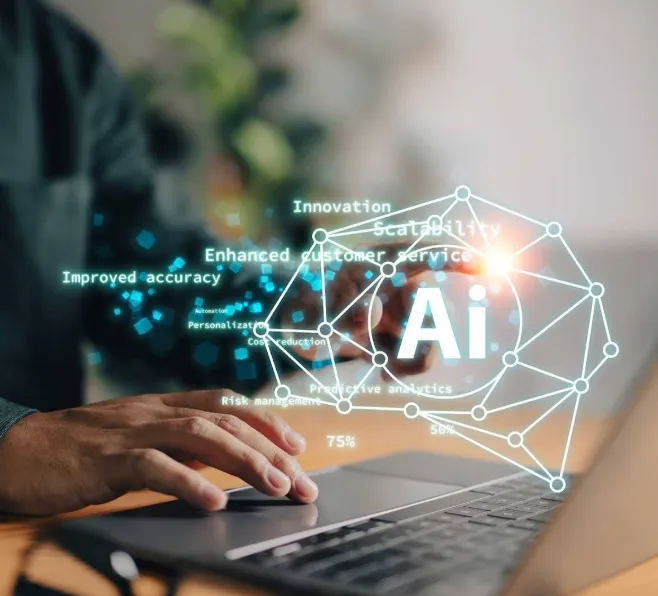Not long ago, the idea of a single entrepreneur building a billion-dollar company sounded like pure fantasy. Today, it feels more like a countdown. Industry leaders, including OpenAI’s Sam Altman, have openly speculated on when—not if—this milestone will be achieved. Thanks to advances in artificial intelligence, the notion of a “one-person unicorn” is rapidly moving from speculation to inevitability.
The Solo Billionaire Is No Longer a Myth
AI has matured from a trendy buzzword into the foundation of modern enterprise. It automates routine tasks, delivers insights at scale, and unlocks possibilities once limited to large corporations with vast resources. The infrastructure is already in place, and the idea of an individual leveraging AI to achieve billion-dollar success is closer than ever.
For business leaders, the pressing question is no longer about whether AI will shape the future but how to adopt it strategically to compete in this new reality.
2025 and the Rise of Autonomous AI
This year represents a turning point as autonomous—or agentic—AI takes center stage. Unlike earlier systems that required constant oversight, agentic AI can learn, adapt, and act independently. This shift enables organizations to automate not just repetitive tasks but entire processes, driving efficiency and innovation at levels previously unimaginable.
Consider a few examples:
- In customer service, AI agents handle inquiries, solve problems, and deliver personalized interactions without human intervention.
- In finance, autonomous systems analyze markets, execute trades, and optimize portfolios faster and more accurately than human teams.
- In healthcare, AI assists in diagnostics, patient monitoring, and treatment planning, improving outcomes while easing the burden on medical professionals.
This isn’t a futuristic vision—it’s happening now. Agentic AI is redefining roles, transforming industries, and offering tools that amplify human capability while functioning on their own.
AI’s Reach Across Every Industry
While tech companies may be the early adopters, AI’s influence extends far beyond Silicon Valley. Its impact is universal:
- Retail: Smarter algorithms deliver tailored shopping experiences, boosting engagement and sales.
- Real estate: Intelligent market analysis tools empower solo agents to make data-driven decisions and maximize returns.
- Education: Adaptive platforms personalize learning for each student, scaling quality education without massive teaching staff.
These examples illustrate a larger truth: AI’s potential to reshape industries is virtually limitless.
The Tools Are Already Here
The resources needed to build a scalable, AI-powered business aren’t theoretical—they’re available today. Forward-thinking leaders are already making use of them:
- AI and machine learning frameworks like PyTorch and TensorFlow.
- Cloud platforms such as AWS, Azure, and Google Cloud that offer scalable infrastructure.
- No-code and low-code tools like Zapier, Bubble, and n8n, which allow rapid innovation without extensive coding.
- Automation platforms including UiPath and Automation Anywhere to streamline repetitive workflows.
The technology exists. The only barrier left is whether you’re willing to put it to work.
Why AI Adoption Is Now a Business Imperative
Treating AI as an optional experiment is a mistake. It’s a strategic necessity for staying competitive. Reid Hoffman, co-founder of LinkedIn, put it best: “Start using AI deeply. It is a huge intelligence amplifier.”
To harness its full potential, leaders should:
- Identify which processes can benefit most from automation.
- Invest in cloud-based infrastructure for flexible growth.
- Enable teams to innovate with no-code tools.
- Stay informed through continuous learning about evolving AI capabilities.
Leadership in the AI Era
Adopting AI isn’t just about technology—it’s about culture and vision. Leaders must:
- Foster an environment where experimentation and innovation are encouraged.
- Provide employees with training to use AI effectively.
- Build partnerships with technology providers who can tailor solutions to specific needs.
The Future Is Already Unfolding
The rise of AI-powered, one-person billion-dollar companies is no longer a distant theory—it’s an approaching reality. Every business leader must decide whether to embrace this shift or risk being left behind.
Your competition may not be a traditional company at all. It could be a single entrepreneur leveraging AI more effectively than you. The challenge is clear: adopt AI as a core part of your strategy, or watch others redefine the market without you.





